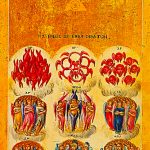Well, here’s a take on the Album of the Moment that I hadn’t expected, from writer Sarah Koops Vanderveen:
In Lemonade, Beyoncé gives us a glimpse of a woman who is idolized by her fans but who has felt the deep pain of betrayal. She has captivated the world, but finds herself unable to hold the heart and attention of the person she loves the most. In one scene in between songs, she says, “Why can’t you see me? Why can’t you see me? Everyone else can.” Even though this project seems intent on speaking specifically about black female identity, there is also something deeply, universally human in Beyoncé’s cry of not being “seen” and understood.
It was so riveting that, as I got to the end of it, I had the sensation that I had somehow forgotten to breathe. I knew that I had witnessed something deeply honest and true, even as I was still trying to process exactly what I had seen.
I tried to describe Lemonade to a few friends. My college-aged son had insisted I see it and I found myself in the same position, urging them to take the time. It’s moving in its poetry, emotional violence, and powerful articulation of the whole range of human emotions.
But it was only when I saw a recent video of scholar and author Eugene Peterson and U2’s Bono talking about the Psalms did I finally realize what this thing is, this album I was trying to describe, and why it felt so deeply true. Lemonade is a kind of modern woman’s psalm.
According to Peterson, the biblical psalmists not only created expressions of joy and praise, but also of anger and violence and “the hurt and disappointment and difficulty of being human.”
Which is exactly where Beyoncé takes us in Lemonade.
“The only way we can approach God is if we’re honest, through metaphor and through symbol,” Bono says in the conversation with Peterson. “So art becomes essential, not decorative.”
Photo: YouTube
















